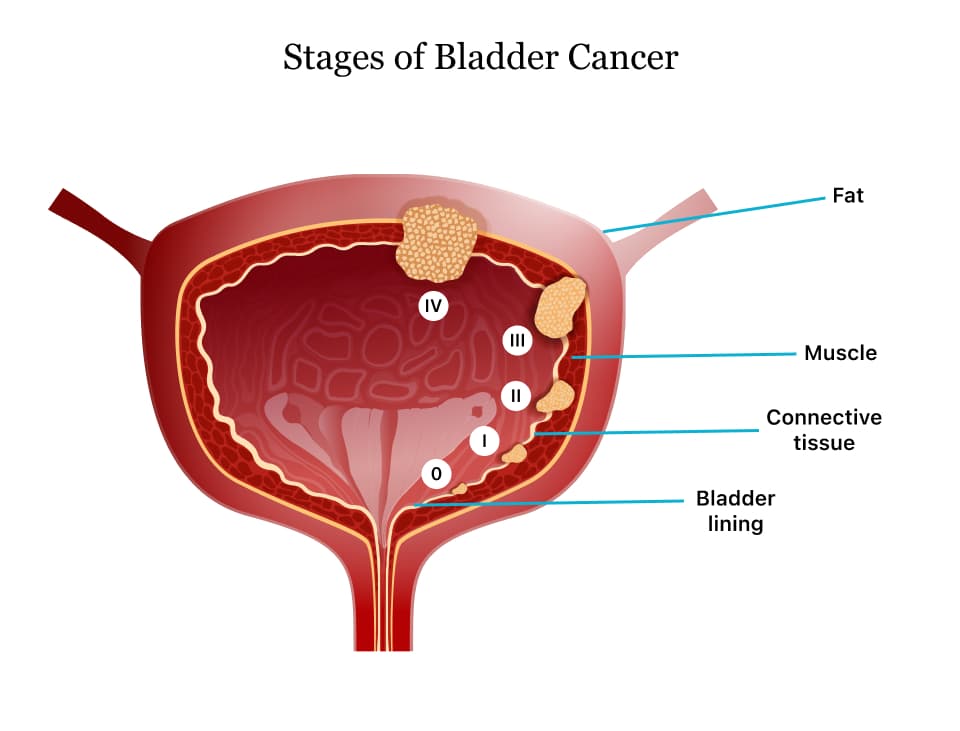Our Specializations
Bladder

Surgeries
- Open Cystectomy (Partial or Radical).
- Laparoscopic and Robotic Cystectomy (Partial or Radical).
- Bladder augmentation surgery.
- Urinary diversion.
- Transurethral resectionof bladder tumour (TURBT).
- Neobladder reconstruction surgery.
- Bladder suspension surgery.
Bladder Cancer
Bladder cancer is a common malignancy affecting the urinary bladder. Risk factors include smoking and exposure to certain chemicals. Timely diagnosis and various treatment options are essential for managing this disease.

Symptoms
Bladder cancer usually doesn’t have signs or symptoms in its early stages. With time, signs and symptoms may develop, including:
- Blood in urine (hematuria), which may cause urine to appear bright red or cola colored, though sometimes the urine appears normal and blood is detected on a lab test
- Frequent urination
- Painful urination
- Back pain
Causes
Bladder cancer begins when cells in the bladder develop changes (mutations) in their DNA. A cell’s DNA contains instructions that tell the cell what to do. The changes tell the cell to multiply rapidly and to go on living when healthy cells would die. The abnormal cells form a tumor that can invade and destroy normal body tissue. In time, the abnormal cells can break away and spread (metastasize) through the body.
RIsk Factors
Factors that can increase the risk of bladder cancer include:
- Smoking
- Increasing age
- Exposure to certain chemicals
- Previous cancer treatment
- Chronic bladder inflammation
- Personal or family history of cancer.
Prevention
Although there’s no guaranteed way to prevent bladder cancer, you can take steps to help reduce your risk. For instance:
- Quit smoking
- Take caution around chemicals
- Choose a variety of fruits and vegetables
Visit Us
Zymus Hospital Address
No.1, K NO. 92, Nanjappa Complex, Kanakapura Rd, Raghuvanahalli, Bangalore City Municipal Corporation Layout, Bengaluru, Karnataka 560062
Menu
Quick Links
Copyright © 2024. Dr Anil Kumar T

